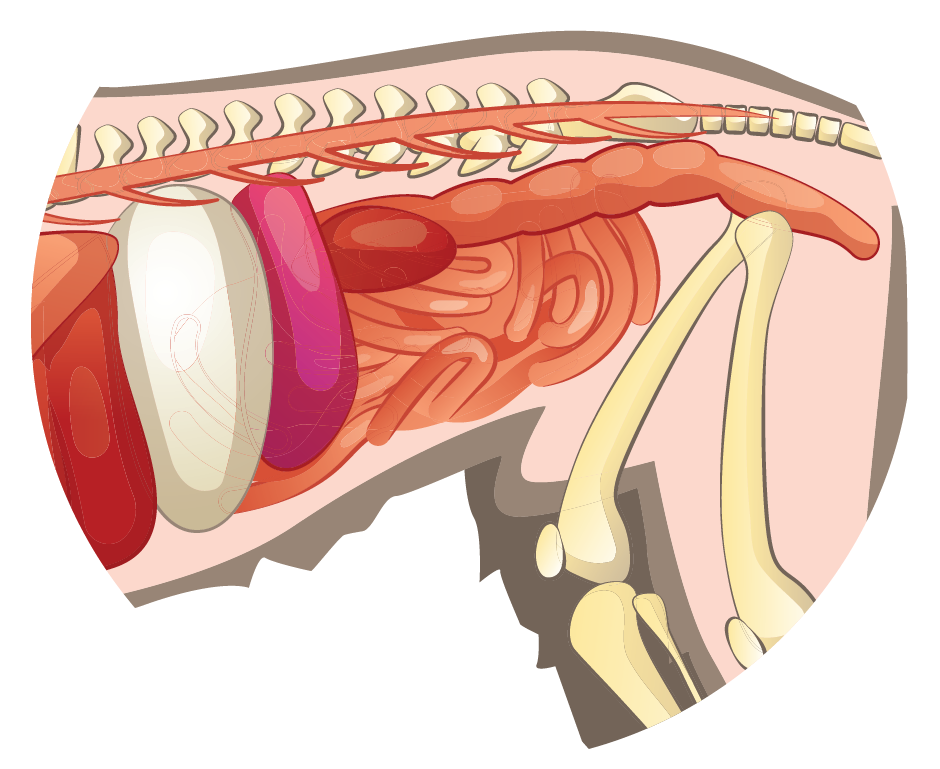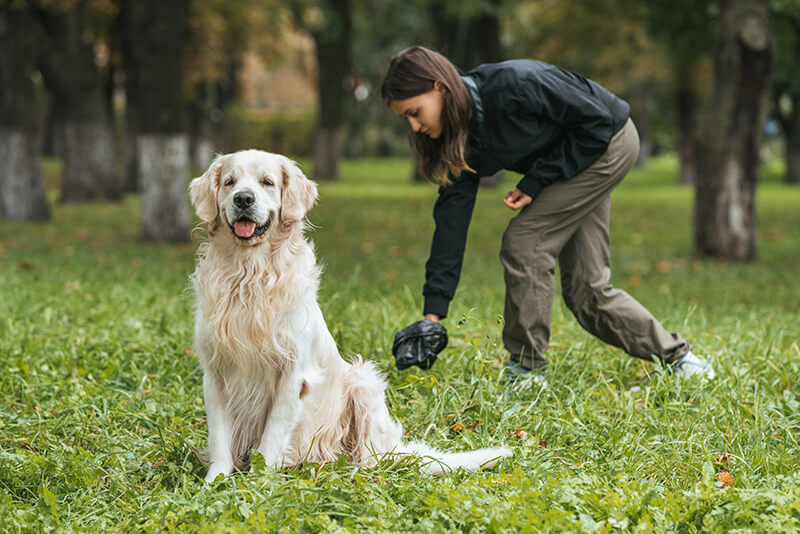Most dog parents don’t think about their dog’s digestive systems until they notice something wrong. They see it in the yard (hopefully) or in the house (hopefully not). But your dog’s digestive system serves many important functions, and it deserves proactive – not just reactive support
What are the functions of a dog’s digestive system?
Dogs’ digestive systems serve multiple purposes, including:
- Digesting food
- Absorbing nutrients from food
- Eliminating waste from the body
- Maintaining the balance of fluid and electrolytes
In addition to these functions, the digestive system affects other critical systems within the body. For example, your dog’s gastrointestinal tract contains about 70% of their immune system. If a dog’s body isn’t receiving the nutrients it needs, its ability to fight off invading infections and diseases is considerably lowered. And it’s no secret that dogs’ brains – like ours – are linked to their gut health. In fact, the gut and brain are in constant communication, and there is substantial scientific evidence that their gut microbiomes affect dogs’ mood and behavior, including aggression and anxiety.
How does the digestive system work?

The digestive system is complex, involving many different organs, systems and functions within the body. But it can be broken down into four main components. Imagine that your dog is happily chowing down on their dinner. The first stop for their food is the…
Mouth and Esophagus – A dog’s digestive system starts in the mouth where the physical breakdown of food begins through chewing. Saliva is also produced here to help lubricate the food for quick passage down into the throat. Unlike humans, dogs’ saliva does not contain enzymes that help break down the food chemically. Next, the food travels down the esophagus to the…
Stomach – This muscular organ is where most of the digestion takes place. Gastric juices containing enzymes and acids break down the food. Compared to humans, dogs’ stomachs are more acidic, and the partially digested food stays in the stomach for considerably longer, 4-8 hours or more. Their stomachs can also expand to take in large amounts of food at once. This impressive food storage is a physical trait inherited from wolves, who often had to go for long periods of time between their meals. Once the food is broken down into a mushy substance called chyme, it’s passed into the…
Small Intestine – The main function of the small intestine is to finish digestion and absorb nutrients. It is divided into 3 sections: the duodenum, jejunum, and ileum. In the duodenum, secretions from the liver and pancreas help neutralize the acidity in the chyme. Next, in the jejunum and ileum, nutrients are absorbed through villi into the bloodstream. Dogs have much shorter intestines than humans, allowing for quicker nutrient absorption and travel time. Next, the undigested material moves to the…
Large Intestine – Larger in circumference but shorter in length than the small intestine, the large intestine consists of the cecum, where the small and large intestines meet, the colon, and the rectum. In the colon, water and electrolytes are absorbed and the remaining meal is compacted into solid waste form. This waste is stored in the rectum until it passes through the anus.
So, how long does this journey take? How long does it take for food to travel through a dog’s entire digestive system? The time it takes for food to travel through a dog’s digestive system is between 4 and 10 hours, depending on a variety of factors, including:
Water – Drinking water helps dogs to digest their meals more efficiently. Lack of hydration slows the process down.
Diet – Heavily process meals with low-quality ingredients will take the body significantly longer to digest than meals with real, high-quality ingredients.
Exercise – Regular exercise helps keep their digestive systems regular, with moving the body linked to more efficient movement within the bowels.
Size and Age – Smaller dogs and puppies digest their meals quicker than larger and adult dogs.
How can we maintain our dogs’ digestive health?
As stated above, dog parents should make sure that their dogs are drinking enough water, getting regular exercise, and eating a high quality, minimally processed diet with easily digestible protein and insoluble fiber sources, which help absorb water and improve the efficiency of the digestive system. You can also feed them probiotics, live organisms that support gut health. Dogswell® Gut Health Jerky Treats are an easy way to give them beneficial probiotics, protein, and gentle fiber from real pumpkin.
What should I do if my dog is having digestion issues?
If your dog is experiencing any signs of digestive problems – diarrhea, vomiting, loss of appetite or weight loss, lethargy, constipation, bloating, or excessive flatulence – your best bet is to call your veterinarian right away. She or he can examine your dog and do a fecal test to find out what’s causing the distress. Once it’s identified, you can discuss a medical and dietary plan of action to resolve the issues and maintain digestive – and overall – health.

